Photo: Ollie Millington/Redferns
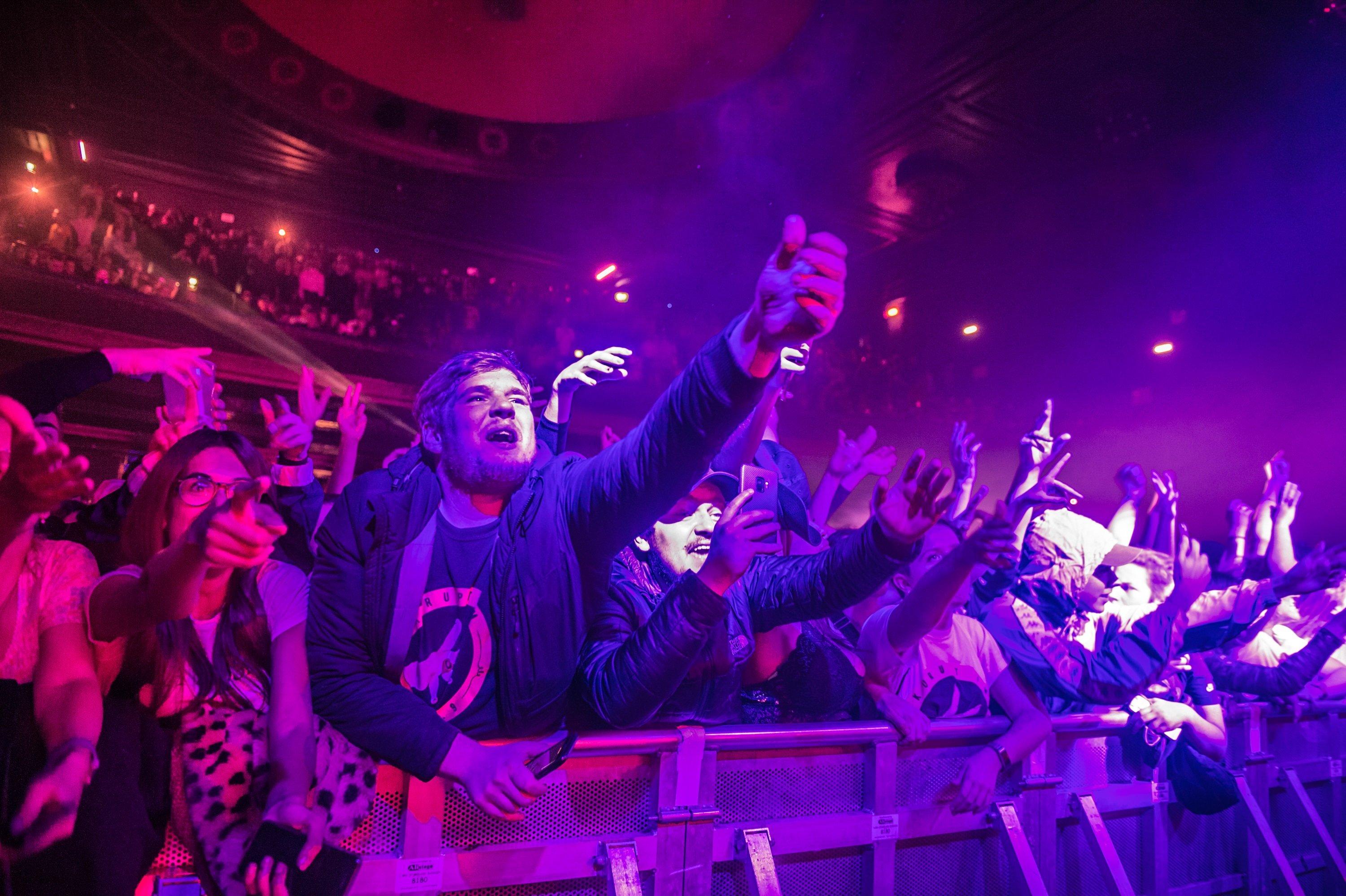
news
Report: Music Fans Traveled The World For Live Events In 2018
As accessibility makes the world smaller, more music fans are crossing borders to attend live concerts and festivals—can you guess which artists fans travelled to go see the most?
Music lovers and fans of man other live events dusted off their passports and headed out to international destinations to catch music live in 2018, a new study by StubHub shows.
<blockquote class="twitter-tweet" data-lang="en"><p lang="en" dir="ltr">We’ll remember 2018 not for the shows we saw and the teams we cheered for, but for the people who experienced them with us. <a href="https://t.co/NJvCKlFRPa">pic.twitter.com/NJvCKlFRPa</a></p>— StubHub (@StubHub) <a href="https://twitter.com/StubHub/status/1070029976345337856?ref_src=twsrc%5Etfw">December 4, 2018</a></blockquote>
<script async src="https://platform.twitter.com/widgets.js" charset="utf-8"></script>
The study, solely based on sales from StubHub, shows roughly 200,000 customers went to a different country to experience one of approximately30,000 live events, according to Rolling Stone. Fans included in the report come from 144 countries that include the United States, United Kingdom, Japan, Canada, Mexico and France. The U.S. and the U.K. are home to the fans most likely to travel for concerts, festivals, sports and other live events.
Perkins Miller, Stubhub’s general manager of the Americas says that all the travel is due to a combination of recent trends and traveling accessibility.
“There are a few industry and cultural factors driving the trends we’re seeing,” Miller told Rolling Stone. “On the industry side, we are seeing artists expand their star power internationally — fans flocked from 80 different countries to watch K-Pop boy band BTS perform — and as a culture, we are traveling further afield to experience live events. The easy availability of apartment rentals and homestays is accelerating this trend. Nothing lets you experience another culture quite like immersing yourself in a live event. In some way, it’s the ultimate way to feel ‘like a local.'”
While many international music fans travel to America each year for concerts, Rolling Stone noted that Americans are visiting the U.K. and Canada the most, but music fans are visiting Italy, Ireland and the Netherlands more than prior years.
Who are the artists fans are going great lengths to see? GRAMMY winner Ed Sheeran, BTS, Elton John, Foo Fighters, Paul McCartney made the top 5. Who would you travel long and far to see live?
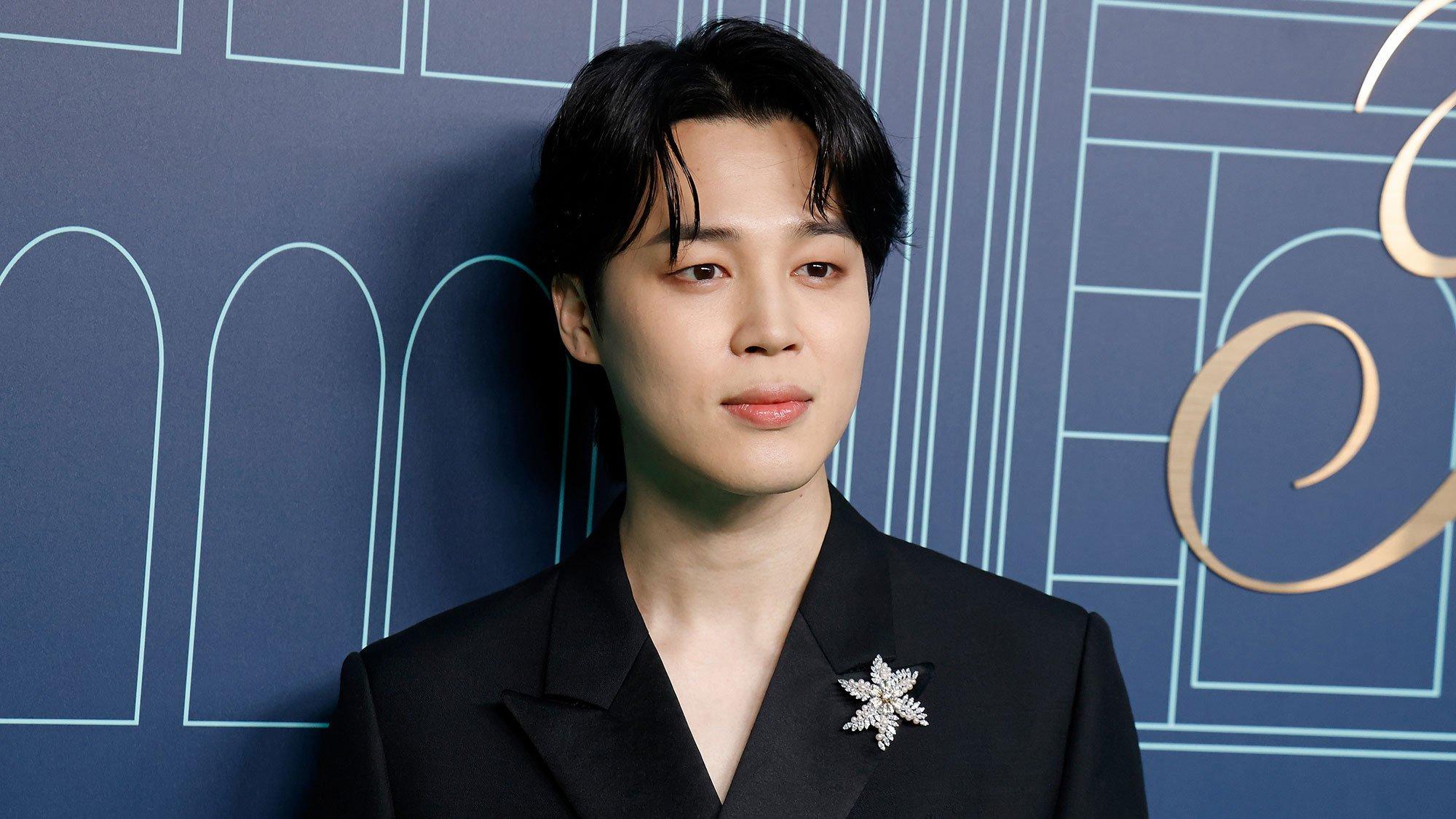
Photo: Taylor Hill/Getty Images
list
5 Takeaways from BTS Jimin's New Album, 'MUSE': A Bold Exploration Of Love And Inspiration
Jimin's second solo project, 'MUSE,' showcases his artistic growth and versatility, featuring a blend of nostalgic sounds, personal reflections, and standout collaborations.
K-pop juggernauts BTS are still on hiatus due to military enlistments, except for Jin, who was discharged last month. Yet, all members remain booked and busy in their solo endeavors.
Documentaries, travel shows, special singles — you name it, they carefully prepared it before starting their duties. And after new records from j-hope (HOPE on the Street) and RM (Right Place, Wrong Person) this year, the next in line is Jimin, who dropped MUSE today.
The album comes almost a year and a half after his debut EP, FACE, which placed Jimin as the first South Korean soloist to top Billboard's Hot 100 chart. In it, the Busan-born star proved his versatility and prowess standing on his own, captivating audiences old and new with his sensitive charisma.
In MUSE, Jimin introduces a new facet of his musical identity: bolder and more confident, but still a big softie at heart. To celebrate the beginning of a new era — and to ease the wait until his discharge next year — here are five key takeaways from Jimin's latest release, MUSE.
It's Another Jimin-Led Production
FACE was a proper introduction to Jimin's artistic vision, with him contributing to every aspect of the project and co-writing all of its tracks, minus the instrumental "Interlude: Dive."
Now, he takes it up a notch for MUSE, showcasing his growth by co-writing six out of seven tracks, and co-producing two of them: "Rebirth" and "Interlude: Showtime." Once again, Jimin had a hand on all of the album's components, including its concept and visuals, and bore down another layer of his ever-evolving skills.
If FACE introduced us to a vulnerable and sometimes desperate Jimin, MUSE charges forward with main pop boy energy, tender but commanding, sweet but sassy. It works both as a gift to fans and a tool to get to know Jimin even deeper.
He’s Still In Search Of His Muse
"We never met, but she's all I see at night/ Never met but she's always on my mind/ Wanna give her the world/ And so much more/ Who is my heart waiting for?" Jimin sings in MUSE's track, "Who." As the lyrics suggest, MUSE's main theme is Jimin's journey to find the source of his inspiration — his muse.
The album's seven tracks are all interconnected by love and longing, with Jimin searching for the one but getting lost in the way, and back at it once more. Through this perspective, he continues his path of self-discovery. After looking at his own FACE in the mirror, who else does he see? Who else instigates him enough to make art?
A Stellar Team Backs Up The Effort
To write and produce MUSE, Jimin enlisted longtime collaborators Pdogg, Ghstloop, Evan, and Supreme Boi. They have also been working with BTS for years, and know just what Jimin wants and needs in his songs.
But to make this album even more special, Jimin also collaborated with a fresh crop of professionals. Lead single "Who" was co-written and co-produced by Jon Bellion, Pete Nappi, and Tenroc, while Ayo the Producer and Kofo co-signed the fan-dedicated "Closer Than This." OneRepublic's Ryan Tedder helped pen "Be Mine," and Tommy Brown has writing credits on "Rebirth" and "Smeraldo Garden Marching Band (feat. Loco)."
Aside from Korean rapper Loco, MUSE also features American actress and singer Sofia Carson on the smooth duet "Slow Dance." Together, these names assembled a cohesive, yet diverse LP, brimming with influences from several decades, genres, and countries at once.
The Smeraldo Flower Makes A Comeback
Back in 2017, when BTS was in their LOVE YOURSELF era, they also introduced to their lore a fictional blue flower named Smeraldo. Symbolizing "a truth that cannot be told," its legend was better explored in the track "The Truth Untold (Feat. Steve Aoki)," and offered important clues to understanding that era's messages.
However, as years passed, the Smeraldo flower was largely forgotten from BTS's new works — until MUSE. Here, Jimin brings back the blue flower as one of the albums' visual concepts, and as the main motif behind pre-release "Smeraldo Garden Marching Band (feat. Loco)."
According to a press statement, the track's lyrics "express the longing to confess and find love on behalf of those unable to articulate their feelings," hence the use of Smeraldo. As for its curious title — loosely inspired by The Beatles' 1967 album Sgt. Pepper's Lonely Hearts Club Band — it came first as a casual nickname between Jimin, Pdogg, Ghstloop, and Evan while they worked together on FACE, and eventually became real.
It’s Packed With Nostalgia
If you miss Justin Timberlake's Justified sounds and other early-2000s gems, MUSE is here to take you on a nostalgic trip. Inspired by pop, R&B and hip hop from that era, Jimin gave his latest album a vintage, cozy veneer.
These references are predominantly visible on "Who" and its delightful guitar strums, but "Slow Dance (feat. Sofia Carson)," for example, sounds like an updated version of Usher and Alicia Key's "My Boo," and "Be Mine" could be the 2020's lovechild of Santana's "Maria Maria" and Sean Paul's "I'm Still In Love With You."
Another strain of references can be seen in "Smeraldo Garden Marching Band (feat. Loco)," which extends The Beatles' inspiration to experimental samples and marching band percussion, and creates a quirky piece that strays away from any current trends. "Interlude: Showtime" drinks from the same source, featuring a circus brass and drum line that introduces us to the singularity of "Smeraldo Garden."
While infused with nostalgia, MUSE still appeals to today's tastes, and offers a seamless, polished listen. It stands as a testament to Jimin's artistic growth, and while he might not have found his muse yet — he is certainly a source of inspiration for many.
More BTS News
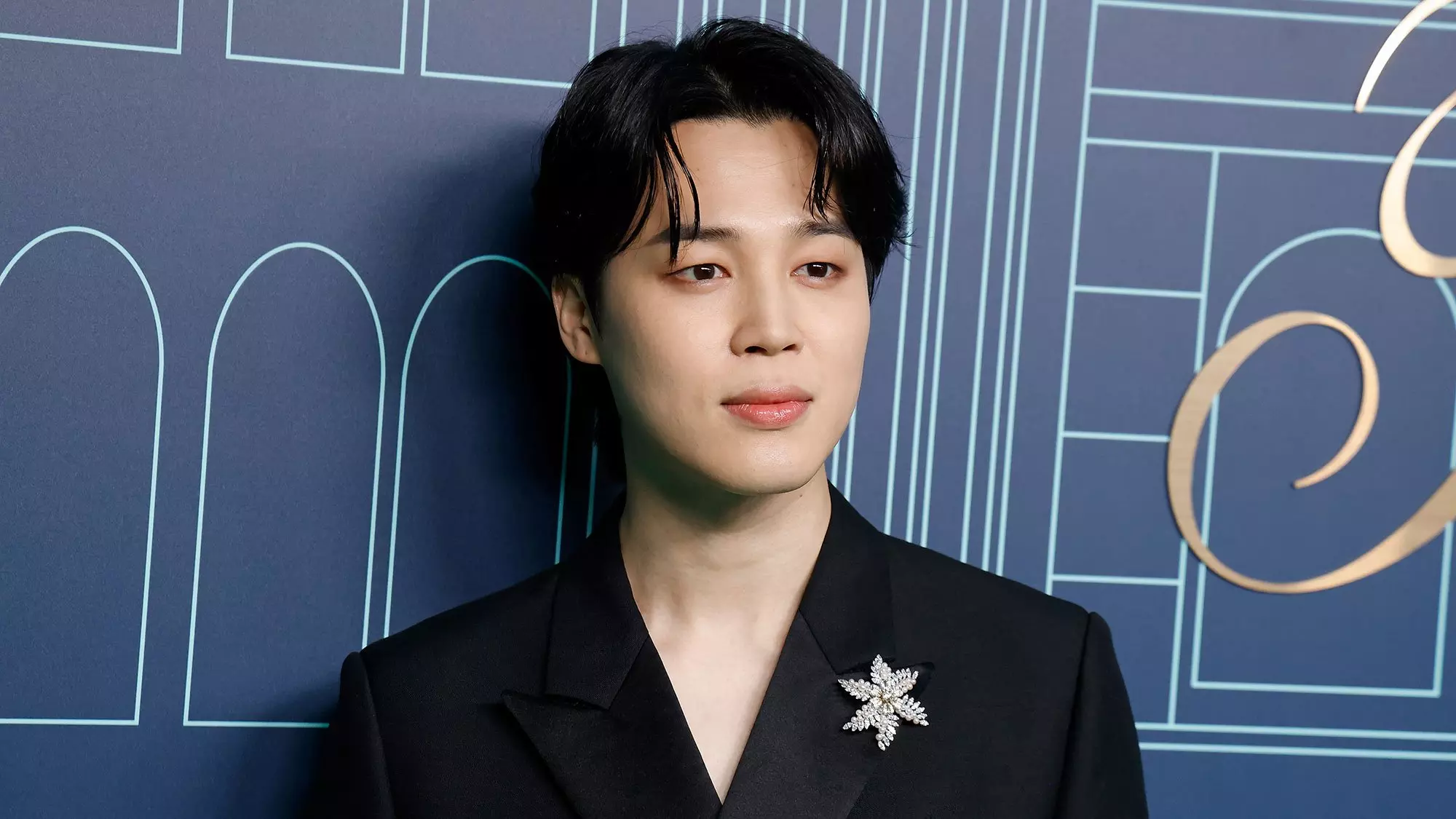
5 Takeaways from BTS Jimin's New Album, 'MUSE': A Bold Exploration Of Love And Inspiration

GRAMMY Museum Partners With HYBE For New K-Pop Exhibit 'HYBE: We Believe In Music' Opening Aug. 2
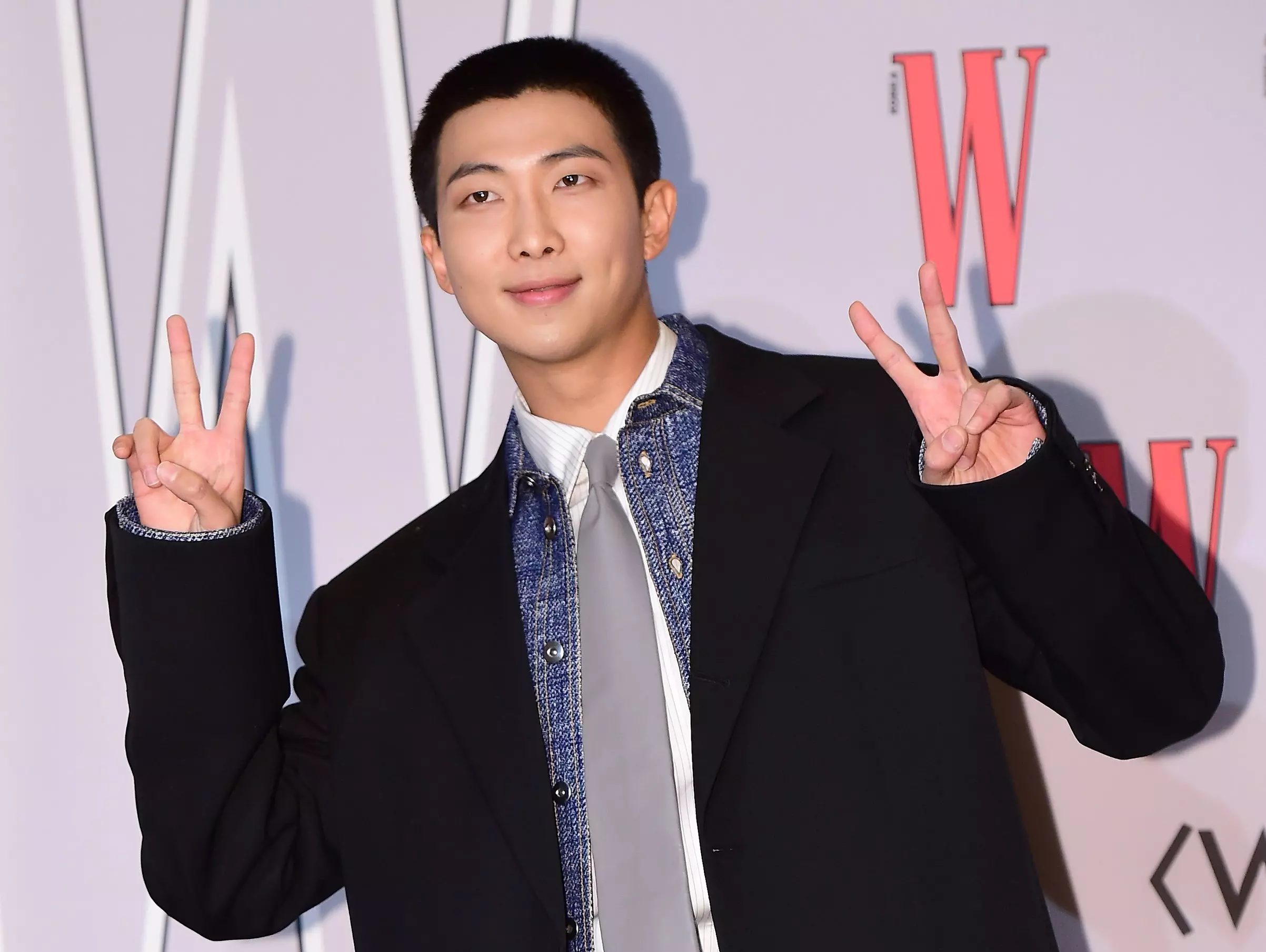
Stream RM's New Album 'Right Place, Wrong Person': See The Tracklist, "LOST!" Video & Special Guests
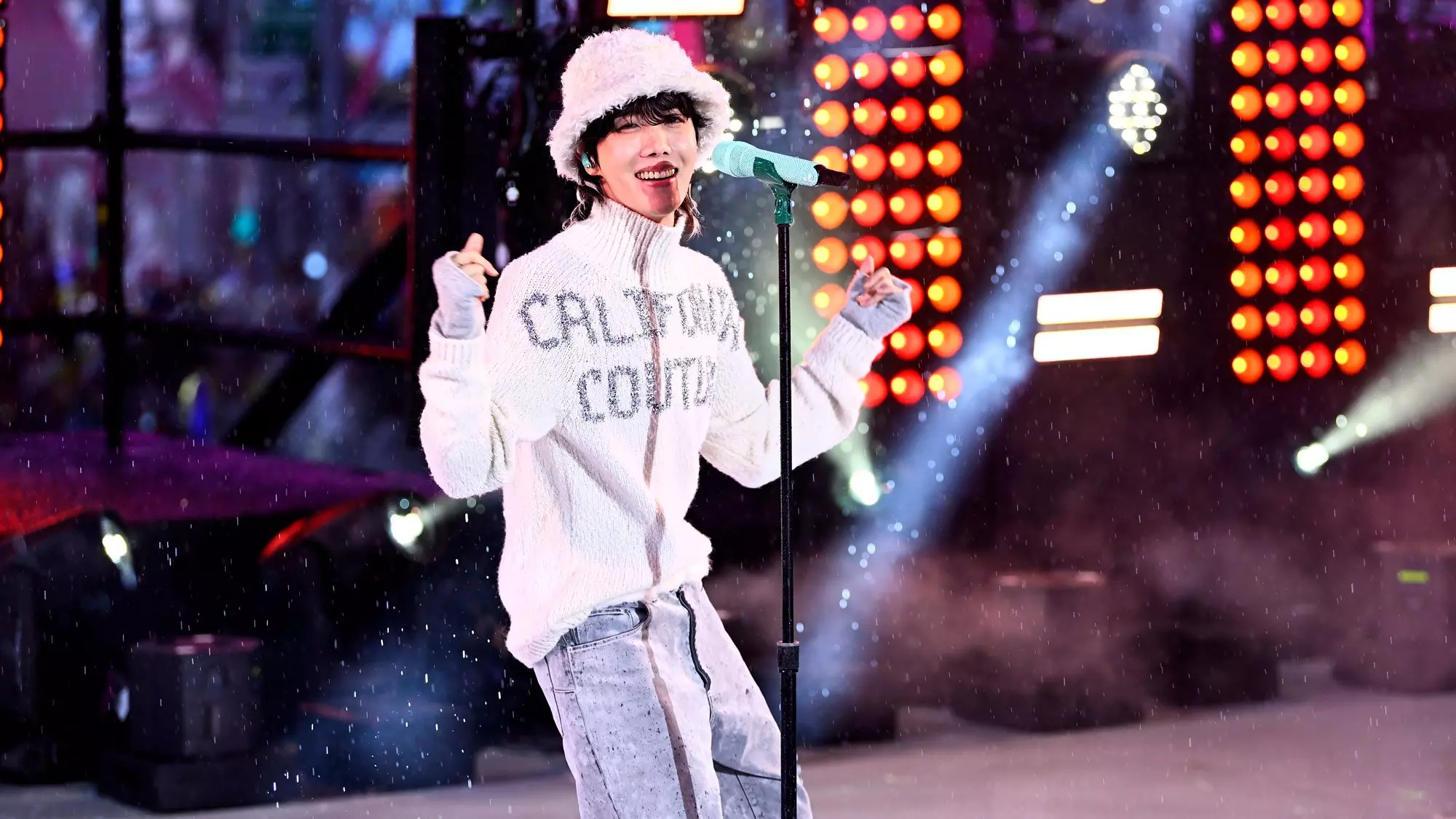
J-Hope's Road To 'Hope On The Street Vol.1,' From Falling Back In Love With Dance To Tying Together His Global Influences
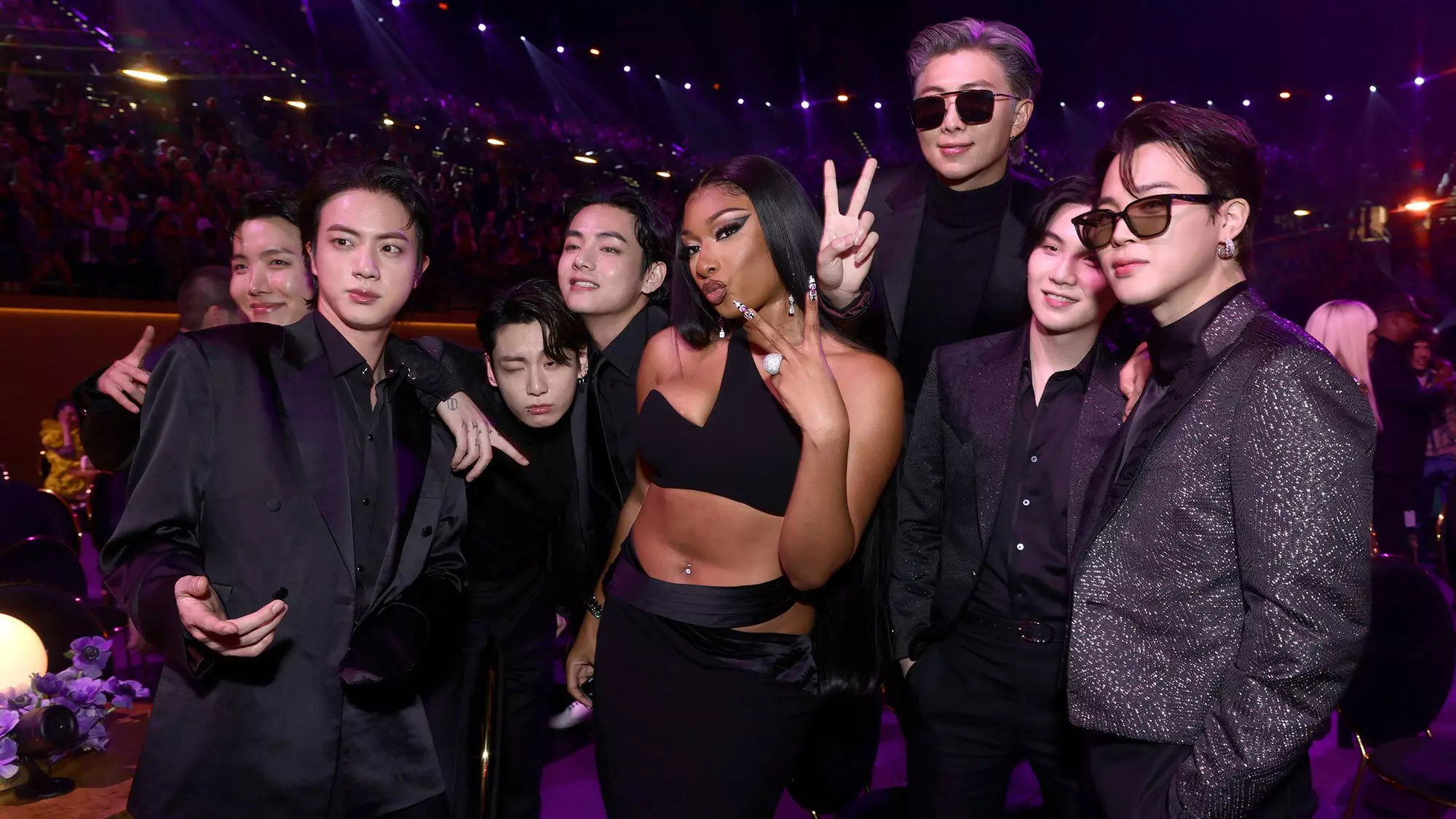
9 Essential K-Pop/Western Collabs: From BTS And Megan Thee Stallion, To IVE And Saweetie

Photo: Archive Photos/Getty Images
list
'A Hard Day's Night' Turns 60: 6 Things You Can Thank The Beatles Film & Soundtrack For
This week in 1964, the Beatles changed the world with their iconic debut film, and its fresh, exuberant soundtrack. If you like music videos, folk-rock and the song "Layla," thank 'A Hard Day's Night.'
Throughout his ongoing Got Back tour, Paul McCartney has reliably opened with "Can't Buy Me Love."
It's not the Beatles' deepest song, nor their most beloved hit — though a hit it was. But its zippy, rollicking exuberance still shines brightly; like the rest of the oldies on his setlist, the 82-year-old launches into it in its original key. For two minutes and change, we're plunged back into 1964 — and all the humor, melody, friendship and fun the Beatles bestowed with A Hard Day's Night.
This week in 1964 — at the zenith of Beatlemania, after their seismic appearance on "The Ed Sullivan Show" — the planet received Richard Lester's silly, surreal and innovative film of that name. Days after, its classic soundtrack dropped — a volley of uber-catchy bangers and philosophical ballads, and the only Beatles LP to solely feature Lennon-McCartney songs.
As with almost everything Beatles, the impact of the film and album have been etched in stone. But considering the breadth of pop culture history in its wake, Fab disciples can always use a reminder. Here are six things that wouldn't be the same without A Hard Day's Night.
All Music Videos, Forever
Right from that starting gun of an opening chord, A Hard Day's Night's camerawork alone — black and white, inspired by French New Wave and British kitchen sink dramas — pioneers everything from British spy thrillers to "The Monkees."
Across the film's 87 minutes, you're viscerally dragged into the action; you tumble through the cityscapes right along with John, Paul, George, and Ringo. Not to mention the entire music video revolution; techniques we think of as stock were brand-new here.
According to Roger Ebert: "Today when we watch TV and see quick cutting, hand-held cameras, interviews conducted on the run with moving targets, quickly intercut snatches of dialogue, music under documentary action and all the other trademarks of the modern style, we are looking at the children of A Hard Day's Night."
Emergent Folk-Rock
George Harrison's 12-string Rickenbacker didn't just lend itself to a jangly undercurrent on the A Hard Day's Night songs; the shots of Harrison playing it galvanized Roger McGuinn to pick up the futuristic instrument — and via the Byrds, give the folk canon a welcome jolt of electricity.
Entire reams of alternative rock, post-punk, power pop, indie rock, and more would follow — and if any of those mean anything to you, partly thank Lester for casting a spotlight on that Rick.
The Ultimate Love Triangle Jam
From the Byrds' "Triad" to Leonard Cohen's "Famous Blue Raincoat," music history is replete with odes to love triangles.
But none are as desperate, as mannish, as garment-rending, as Derek and the Dominoes' "Layla," where Eric Clapton lays bare his affections for his friend Harrison's wife, Pattie Boyd. Where did Harrison meet her? Why, on the set of A Hard Day's Night, where she was cast as a schoolgirl.
Debates, Debates, Debates
Say, what is that famous, clamorous opening chord of A Hard Day's Night's title track? Turns out YouTube's still trying to suss that one out.
"It is F with a G on top, but you'll have to ask Paul about the bass note to get the proper story," Harrison told an online chat in 2001 — the last year of his life.
A Certain Strain Of Loopy Humor
No wonder Harrison got in with Monty Python later in life: the effortlessly witty lads were born to play these roles — mostly a tumble of non sequiturs, one-liners and daffy retorts. (They were all brought up on the Goons, after all.) When A Hard Day's Night codified their Liverpudlian slant on everything, everyone from the Pythons to Tim and Eric received their blueprint.
The Legitimacy Of The Rock Flick
What did rock 'n' roll contribute to the film canon before the Beatles? A stream of lightweight Elvis flicks? Granted, the Beatles would churn out a few headscratchers in its wake — Magical Mystery Tour, anyone? — but A Hard Day's Night remains a game-changer for guitar boys on screen.
The best part? The Beatles would go on to change the game again, and again, and again, in so many ways. Don't say they didn't warn you — as you revisit the iconic A Hard Day's Night.
Explore The World Of The Beatles
.webp)
5 Reasons John Lennon's 'Mind Games' Is Worth Another Shot

'A Hard Day's Night' Turns 60: 6 Things You Can Thank The Beatles Film & Soundtrack For

6 Things We Learned From Disney+'s 'The Beach Boys' Documentary

5 Lesser Known Facts About The Beatles' 'Let It Be' Era: Watch The Restored 1970 Film

Catching Up With Sean Ono Lennon: His New Album 'Asterisms,' 'War Is Over!' Short & Shouting Out Yoko At The Oscars
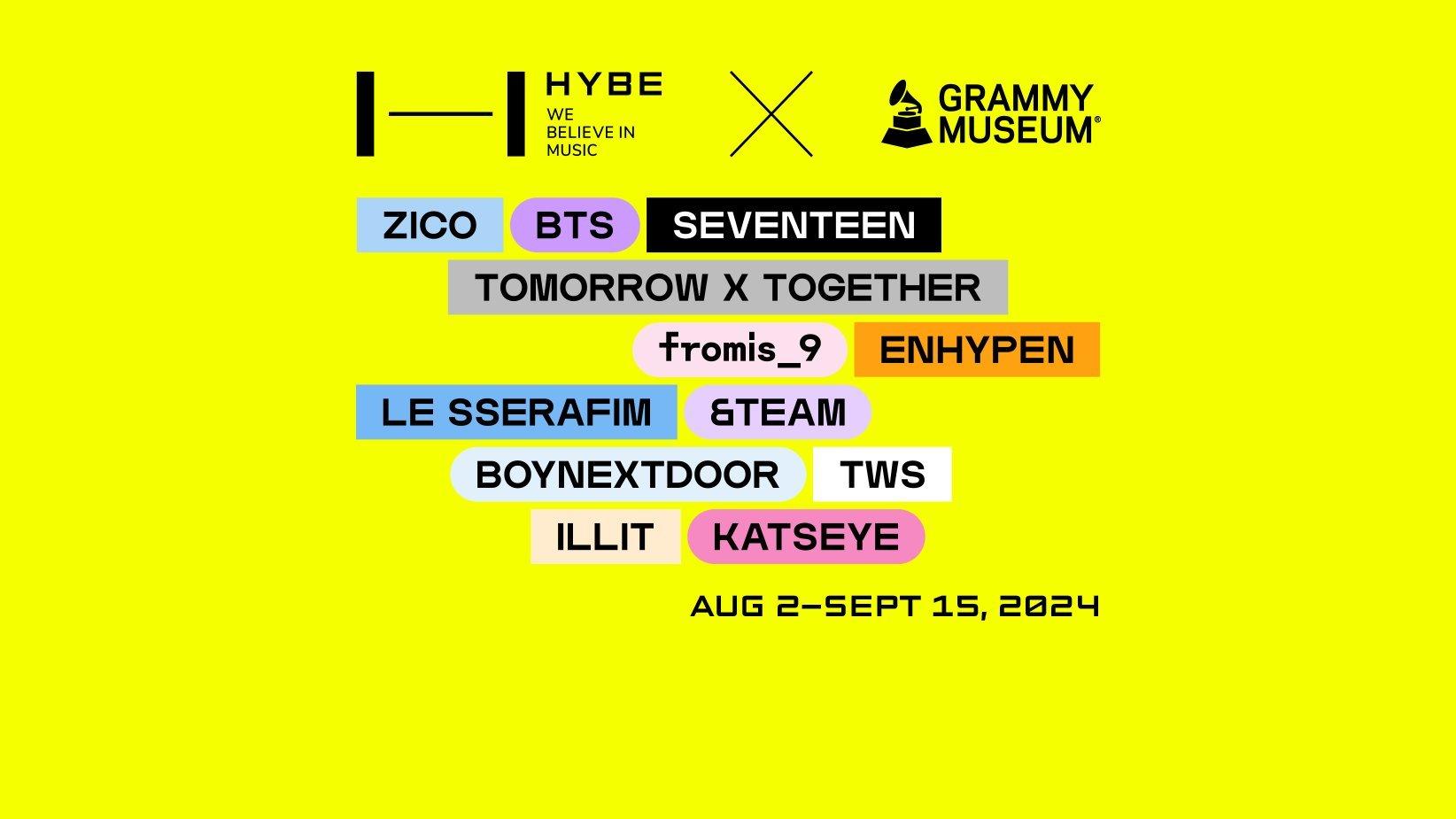
Graphic courtesy of the GRAMMY Museum
news
GRAMMY Museum Partners With HYBE For New K-Pop Exhibit 'HYBE: We Believe In Music' Opening Aug. 2
Running Aug. 2 through Sept. 15, the GRAMMY Museum exhibit showcases artifacts from superstar HYBE artists, including BTS, SEVENTEEN, TOMORROW X TOGETHER, ENHYPEN, LE SSERAFIM, and many more.
The GRAMMY Museum joins forces with HYBE to present its newest exhibit, HYBE: We Believe In Music, A GRAMMY Museum Exhibit. This interactive exhibit chronicles the history and impact of HYBE, and showcases its legacy of unparalleled innovation and creativity as a trend-setting global entertainment brand.
The exhibit opens on Aug. 2 in downtown Los Angeles and features spotlight moments with K-pop stars BTS, SEVENTEEN, TOMORROW X TOGETHER, ENHYPEN, LE SSERAFIM, and many more. "HYBE: We Believe In Music" runs through Sept.15. The exhibit will kick off on Aug. 1 with "Global Spin Live: TWS," a program featuring a moderated conversation with K-pop group TWS, followed by a performance.
The exhibit traces HYBE's evolution and influence by showcasing instantly recognizable artifacts from its roster of artists, creators, and fans. The displays notably feature original outfits worn in iconic music videos such as "Yet To Come (The Most Beautiful Moment)" by BTS, "MAESTRO" by SEVENTEEN, "Sugar Rush Ride" by TOMORROW X TOGETHER, "Sweet Venom" by ENHYPEN, and "EASY" by LE SSERAFIM. HYBE: We Believe In Music also boasts accessories and performance gear donned by ZICO, fromis_9, BOYNEXTDOOR, TWS, &TEAM, and ILLIT. The exhibit marks the first time these artifacts will be on display together in one location.
Other highlights include interactive sing-along and dance rooms, a dedicated Fan Section celebrating the endless support between HYBE artists and their fandoms, a Mono to Immersive room featuring BTS's 2022 GRAMMYs performance of "Butter," and a Photoism Booth that allows visitors to pose alongside their favorite K-pop artists. The GRAMMY Museum exhibit will also feature exclusive video content with producers, artists, music videos, and more.
"HYBE and their artists represent the present and future of the global music landscape, and our goal with this exhibit is to deepen the appreciation and respect for its creators and performers," says Michael Sticka, President/CEO of the GRAMMY Museum. "HYBE has contributed to creating a playground of innovation that inspires fandoms that transcend age, gender, geography and beyond. The GRAMMY Museum is thrilled to provide a space where fans can express their love for K-pop and feel closer to their favorite idols."
Read more: 11 Rookie K-Pop Acts To Know In 2024: NCT Wish, RIIZE, Kiss Of Life & More
HYBE Chief Operating Officer Taeho Kim added, "Putting out an exhibition that captures HYBE's journey is a new experience for us. We're very excited about this partnership with GRAMMY Museum, and we look forward to welcoming music fans who visit the museum to enjoy and connect with our historical pieces."
The exhibit highlights the roots of HYBE's meteoric rise. In 2005, South Korean producer, composer, and songwriter Bang Si-Hyuk, known as "hitman" Bang, changed the trajectory of Korean pop music by launching the record label Big Hit Entertainment. He soon signed a talented 16-year-old rapper named RM, which became the first step in creating the label's groundbreaking boy band — BTS. With the group's global success, "hitman" Bang and Big Hit Entertainment became known as musical trailblazers and record industry innovators. Big Hit Entertainment has now evolved into HYBE, which only continues to break boundaries in music and beyond.
More K-Pop News
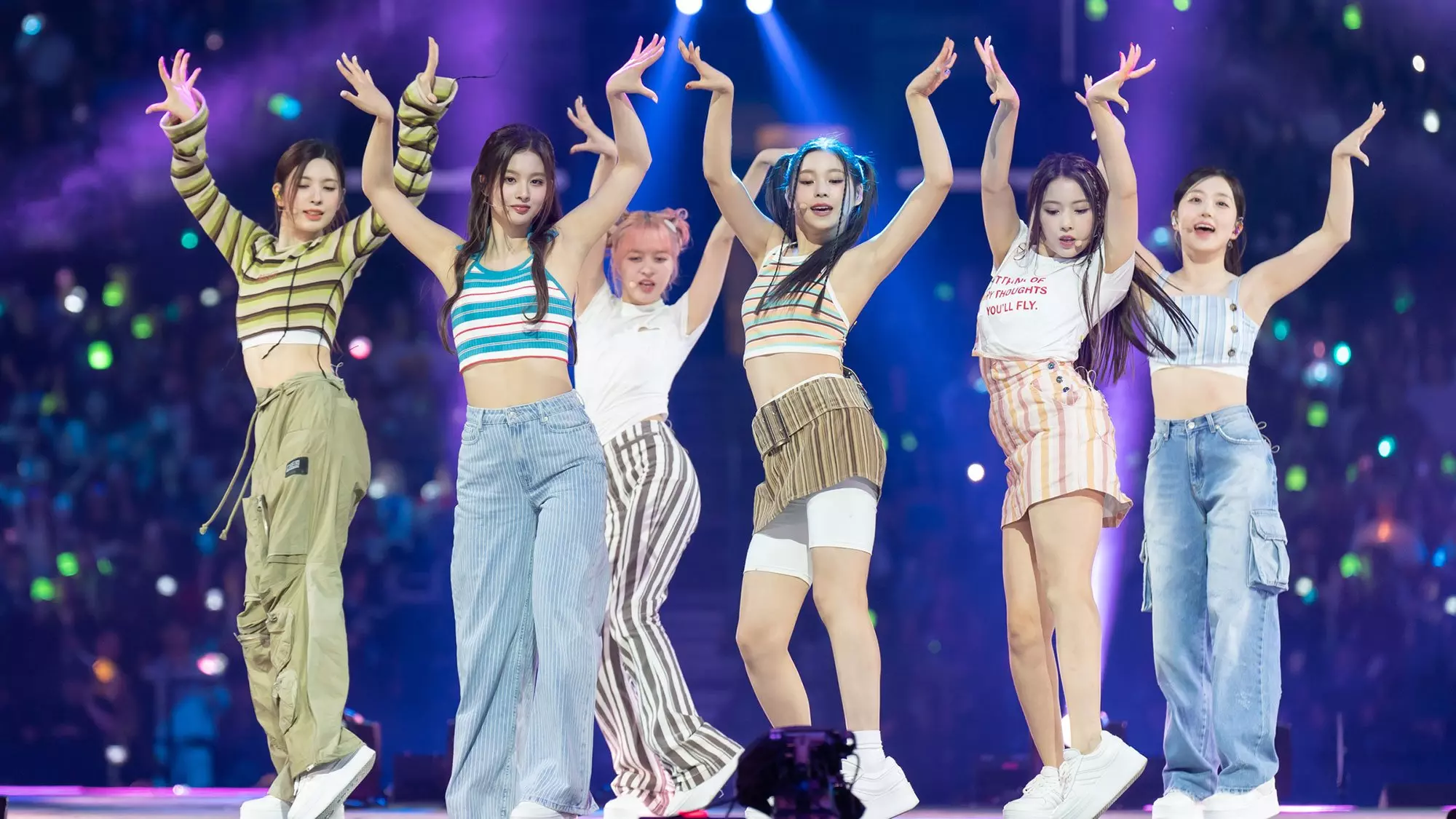
KCON L.A. 2024 Returns: Get Ready With This Playlist Featuring NCT 127, Zerobaseone, ENHYPEN, Zico & More
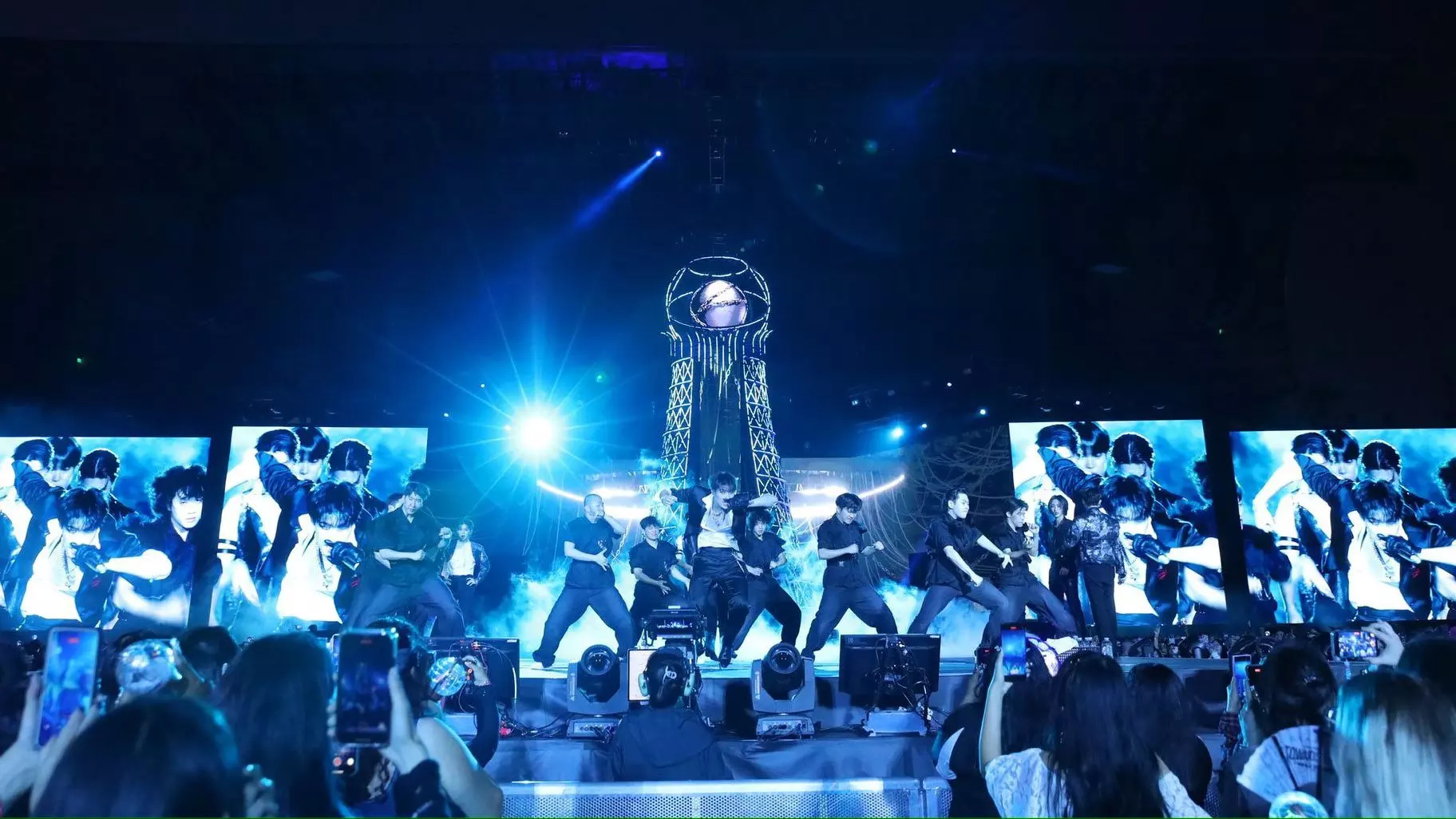
ATEEZ’s First U.S. Stadium Show Was A Triumph & Testament To Their Growth

5 Takeaways from BTS Jimin's New Album, 'MUSE': A Bold Exploration Of Love And Inspiration

NCT 127 Essential Songs: 14 Tracks You Need To Know From The K-Pop Juggernauts

ENHYPEN And JVKE "Say Yes" To Cross-Cultural Collabs & Exploring New Genres
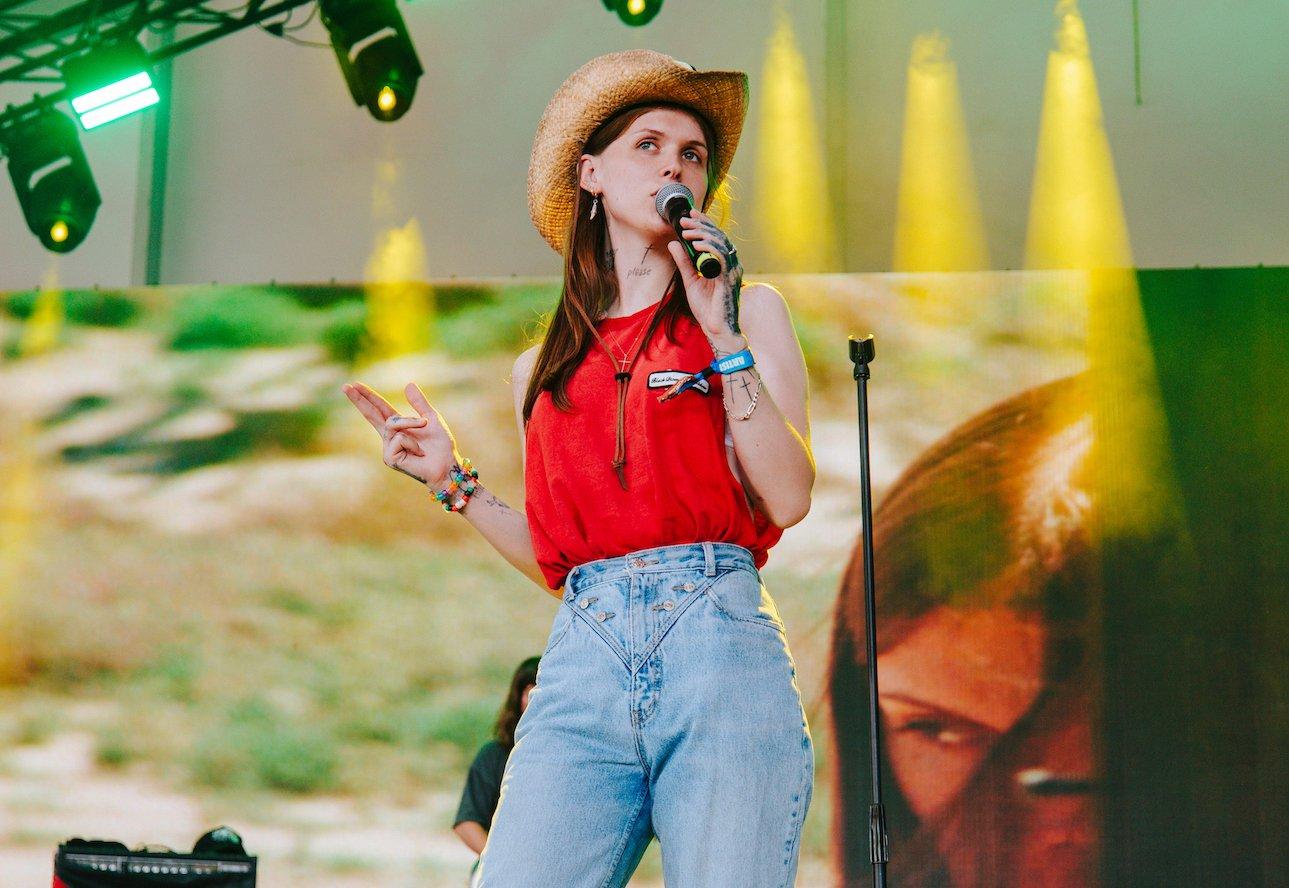
Photo: Ashley Osborn for Bonnaroo 2024
list
9 Epic Sets From Bonnaroo 2024: Ethel Cain, Melanie Martinez, Megan Thee Stallion & More
With an exciting mix of rising stars and big-name performers, Bonnaroo 2024 brought another year of showstopping performances to Manchester, Tennessee. Revisit some of the most intriguing sets from The Japanese House, Interpol and more.
The 2024 iteration of Tennessee's Bonnaroo Music & Arts Festival was an absolute scorcher — even without the 95-degree highs.
The weekend brought some of the hottest names in music for a stacked lineup of buzzy newcomers and hitmaking veterans. From the Red Hot Chili Peppers' spectacular return to touring with John Frusciante, to Dashboard Confessional's star-studded Emo Superjam, to Billy Strings joining Post Malone for "rockstar," to Chappel Roan singing to a wig, there was no shortage of unforgettable moments at The Farm.
While this year was the literally hottest that Bonnaroovians had seen in a few years, sweating through shirts (or lack thereof) proved completely worth it as some of the biggest iconoclasts came together and brought their all. It was electrifying, whimsical and at times emotional — and the bright, sunny skies served as the perfect backdrop for it all.
If anything, the blistering — and briefly thundery — weather was a testament to the enduring nature of music fans; folks from all over the globe will never miss a chance to watch their favorite artists. Relive the magic with nine of the most exciting sets from Bonnaroo 2024.
The Foxies Took Technical Mishaps In Stride
The Foxies | Yvonne Gougelet for Bonnaroo 2024
Nashville's premier glitterpunk exports the Foxies delivered a fun, crowd-pleasing set Thursday night on the Who stage, even despite a flurry of audio issues and technical hiccups. The Roo crowd was forgiving, though, and the band rewarded us with some of the best songs from their catalog — plus a cover of Sheryl Crow's "If It Makes You Happy."
"Summer Never Dies," "Timothee Chalamet," and "Little Monsters" all landed perfectly, but the group's personality shone brightest during their newest release, "Natural Disaster." It couldn't have been a more apt song for Bonnaroo's carefree setting — an ode to feeling free and accepting the wildest parts of yourself.
"A huge theme while we were writing ['Natural Disaster'], for me, was when I was 20 living in Brooklyn, how I was, all the cringey stuff that I did as a young adult," The Foxies frontwoman Julia Bullock told GRAMMY.com backstage. "I wish I wouldn't have shied away from it, or been embarrassed by it — I wish I'd leaned into the cringiness. This is an anthem for that: if I could do it all over again I would just embrace the fact that we are all just weird." Indeed we are, Julia.
The Japanese House Brought Love And Light
The Japanese House | Yvonne Gougelet for Bonnaroo 2024
Since its 2015 inception, The Japanese House has always been in the zeitgeist. Where Amber Bain's heavily layered, mournful music was inescapable during the pale-grunge Tumblr era, it now occupies a much lighter space. Coming off of a banner year and a critically acclaimed album, In the End it Always Does, Bain has been embracing her pop side like never before.
Her set was a cornucopia of new and old sounds, the most exciting part of which was her new song, "Smiley Face." Written a year ago when Bain met her current fiancée on a dating app, "Smiley Face" is bright, soft, and sploshy, fraught with the energy of someone falling deliriously in love. "[When we first met] she lived in Detroit and I lived in London, and I would stay awake until she fell asleep," Bain tells GRAMMY.com of the song. "We were in different time zones. I was running on nothing — I felt a bit high."
Like the rest of her discography, the song held the audience in the palm of its hand, this time enveloping us in a warm, flickering glow. "I could be losing my mind but something's happening," Bain sang, naturally, with a smile on her face.
TV Girl Delivered A Masterclass In Melodrama
"I have a bit of stage fright," revealed TV Girl singer Brad Petering before the group's second to last song. Even if he felt it, stage fright wasn't apparent during the indie pop band's hour-long performance. Their set felt like a dream; onlookers got lost in the moment, spinning, swaying and dancing in the refreshingly cool breeze.
It fell serendipitously near the 10th anniversary of their debut, French Exit, an album that launched them into the limelight as stalwarts of indie pop. Songs like "Louise" and "Lovers Rock" felt almost nostalgic 10 years on, and newer cuts like "99.5" and "The Nighttime" blended right in. Backed by a full band — including backup singers Kiera and Mnya, whose powerhouse vocals could've made for their own show — TV Girl turned already dynamic songs like "Birds Don't Sing" and "Not Allowed" into even fuller, radiant versions of themselves.
Ethel Cain Took Us To Church
Ethel Cain | Ashley Osborn for Bonnaroo 2024
Despite its small size, there was no more perfect space for an Ethel Cain set than the reserved, remote That Tent in the quiet corner of Bonnaroo. Her performance saw the quaint venue packed to the brim, 1000-odd people staring back at Cain in dumbstruck awe, as her band played through songs inspired by Christian music and Gregorian chant.
Beginning with unreleased song "Dust Bowl" and the haunting "A House in Nebraska," Cain's performance was an intense, resounding 40 minutes that traversed between peace and emotional turmoil, much like all of the songs from her breakthrough album, Preacher's Daughter. The euphoric response from her overflowing audience left little doubt that her songwriting can break down walls; she's a timeless act, and her Bonnaroo set proved it.
Neil Frances Set Themselves Apart
There are a number of artists with variations of the name Neil Frances — or at least that's what it looked like from this year's Bonnaroo bill. One difference in letters, and you may have found yourself at the Other Stage at 6:15pm on Saturday, seeing Neil Frances instead of Neal Francis. But, whether you've been a fan of Neil Frances for years, or you wound up there by mistake, the indie-dance duo would not have let you leave disappointed.
Backed by a live full band, their set felt like a psychedelic ode to the club, to dancing, and to feeling free. And their live production is every bit an artistic endeavor as is being in the studio.
"We've always preferred to play with a live band; there are so many things that we do live that are completely different from the record," the duo's Marc Gilfry told GRAMMY.com. "It's fun, it's dramatic, and we have really great musicians."
Read More: NEIL FRANCES Just Want To Have Fun & Get 'Fuzzy'
Melanie Martinez Gave Us A Peek Inside Her Mind
Melanie Martinez | Dusana Risovic for Bonnaroo 2024
Adorned with bows, horns, over-the-top dresses, and a multi-eyed, alien-like prosthetic mask, Melanie Martinez was dressed exactly how you'd think she would. With a stage setup of greenery, giant mushrooms, nymphs, and various mythical elements that seemed to revel in its own kitchiness, the details of Martinez's intricately-woven performance art unfolded around the audience, song by song, immersing everyone in a world of weird, elaborate fun.
Her dancers wove through a delicately choreographed, three-act narrative, taking the crowd through her three albums in chronological order, telling the story of the Cry Baby character, who first appears in her debut album, Cry Baby. The character transforms from baby to child to young adult, and finally, to a fully grown, pink-skinned being in the third act. Martinez's set was artistry in every sense of the word, taking fans through the ups and downs of youth and coming-of-age through rich metaphor and lyrical imagery — and prompting delighted sing-alongs as a result.
Interpol Were A Quiet Gem
Interpol | Ismael Quintanilla III for Bonnaroo 2024
More than 25 years into their career, there's still something very disarming about Interpol. Maybe it's their effortless, NYC cool, or that they still know how to build the type of tension that gives you chills. Or maybe it's that they're men of very few onstage words — and when they do speak, you feel as though you've been given a gift.
Three things can be true, and they were for Interpol's Bonnaroo set Friday Night. Not ones to waste time talking, the three-piece rock band played an unbelievably tight 75-minute set, mostly sticking to a reliable selection of early hits, largely from their 2004 album, Antics. The crowd didn't seem put-off by the lack of chatter, as everybody had some singing along to do — because it was impossible not to.
Milky Chance Never Stopped Dancing
Milky Chance | Douglas Mason for Bonnaroo 2024
Milky Chance wants you to dance. The German duo-turned-quad may have steadily transformed since their early folk days, but they've never abandoned their ability to make every beat danceable and each chorus undeniable. And on stage, they were having a ball.
With a set that included both 2012 hit "Stolen Dance" and their latest, "Naked and Alive,'' their evolution from folk renegades to breezier, disco-pop pundits is on full display — and we're glad they brought us all along for the ride.
Speaking to GRAMMY.com backstage, bassist Philipp Dausch discussed their journey: "It was quite a process to become the band we wanted to be. Our music has always been in-between electronic and folky, so we put a lot of work into becoming that band on stage as well. We love rhythms and beats. We like when music moves you."
Megan Thee Stallion Declared This A "Self-Love Summer"
Megan Thee Stallion | Pooneh Ghana for Bonnaroo 2024
No one is doing it like Meg. A highlight of day four — and perhaps the entire weekend — was Megan Thee Stallion's riotous, yet charming Sunday night set. Clad in a yellow-ombre bodysuit and welcomed by a crowd chanting her name, the Houston hottie commanded the What stage in a manner that suggested it won't be too long until she's in the headlining slot.
"Real hot girl s—," she screamed at the crowd, who didn't hesitate to scream back. It was clear she was on a high; not only was it her first Bonnaroo set, but it also followed back-to-back sold-out shows in her hometown of Houston, making it an absolutely monumental weekend for the rapper.
Her and her dancers shook, twerked, and rolled through each hit without ever losing breath control — even during what she deemed the "personal section" of her set. And that portion was aptly-named; beneath the ass-shaking and thumping beats, "Cobra" brought about an air of sadness during an otherwise infectiously playful and positive performance.
The lyrics chronicle her mental health struggles over the years amidst personal traumas and virulent online abuse. "Man, I miss my parents," she sang of her late parents, on what happened to be Father's Day. But shortly after the poignant moment, Megan quickly returned to her signature body-moving, sex-positve calling cards, "WAP," "Savage," and "Body," during which she declared this summer a "Self-Love Summer." That's some Real Hot Girl S— we can get behind.
